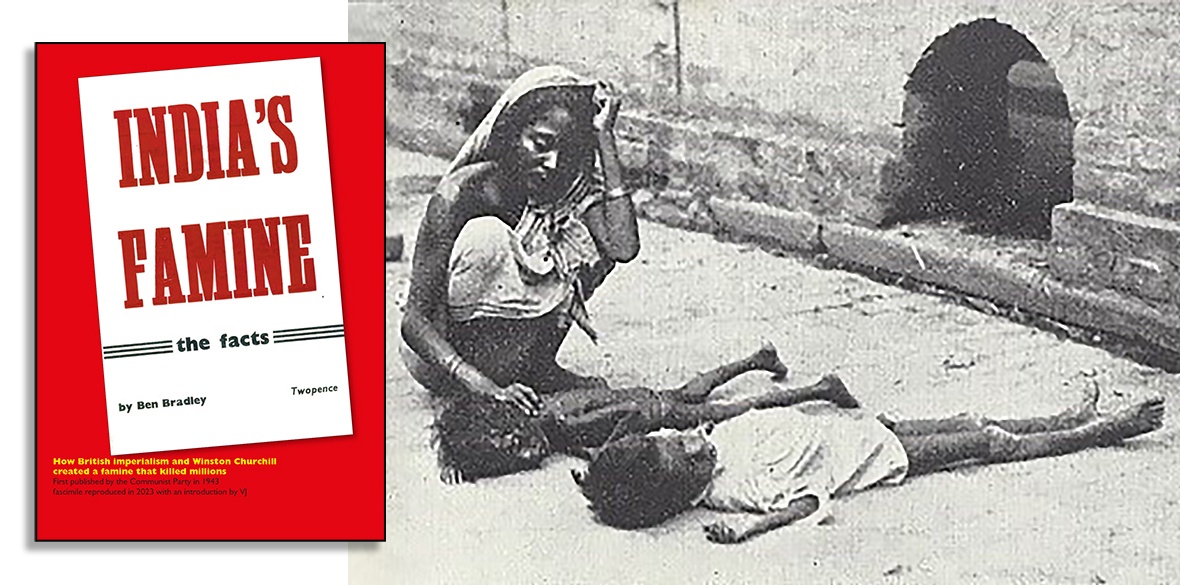This is the last article you can read this month
You can read more article this month
You can read more articles this month
Sorry your limit is up for this month
Reset on:
Please help support the Morning Star by subscribing here
India’s Famine by Ben Bradley
First published in 1943, republished in 2024 by the CPB
Introductions from Shahriar Bin Ali of the Bangladeshi Workers Council and Vijay Prashad of Tricontinental
BECAUSE of its large population, its feudal landholding system and the ravages of British imperialism, India had been subject to regular food shortages and famines over many years.
However, the Bengal Famine, dealt with here, was one of the most iniquitous and devastating because it was avoidable and was hidden from the world by the British colonial administration.
Ben Bradley’s superb exposure of how the famine came about as a result of deliberate British policy and its government’s extreme callousness, is a model of excellent research, humanitarian commitment and a clear anti-imperialist perspective.
In August, 1942, with war raging in Europe, India faced a food crisis, prices of grains had more than doubled above pre-war levels, and food in many cases had already vanished from the open market. The situation was rapidly heading for the worst crisis that India had ever known.
The imperial government, however, was unconcerned. It was too busy locking up many of the popular leaders of the Indian people.
The most appalling tragedy was being enacted with deaths due to starvation, compounded by epidemics of cholera and typhoid added to the horror of the situation.
Reports from Calcutta at the time described the scene: tens of thousands of destitute men, women and children roam the city or exhausted in the doorways and on the footpaths.
The Bengal peasant has been poverty-stricken for generations. The peasantry here were the poorest in the world. Some 1,500,000 people were dying ever year in Bengal alone. Cholera, malaria, tuberculosis and gastric illnesses were rife.
The colonial government’s policy on India was to keep things as they were, protect landlords and maintain the system of land tenancy and revenue.
At the same time, British military authorities were taking large quantities of grain, using coercive measures if necessary, and no attempt was made by the government to control prices or to ration existing stocks.
This reissue is timely, given the impending famine threatening the continent of Africa due to global heating and the ongoing, deliberate starvation of the Palestinian people in Gaza. The callous indifference of the northern rich capitalist countries to these humanitarian crises is the same today as it was when Ben Bradley wrote his pamphlet on India in 1943.










